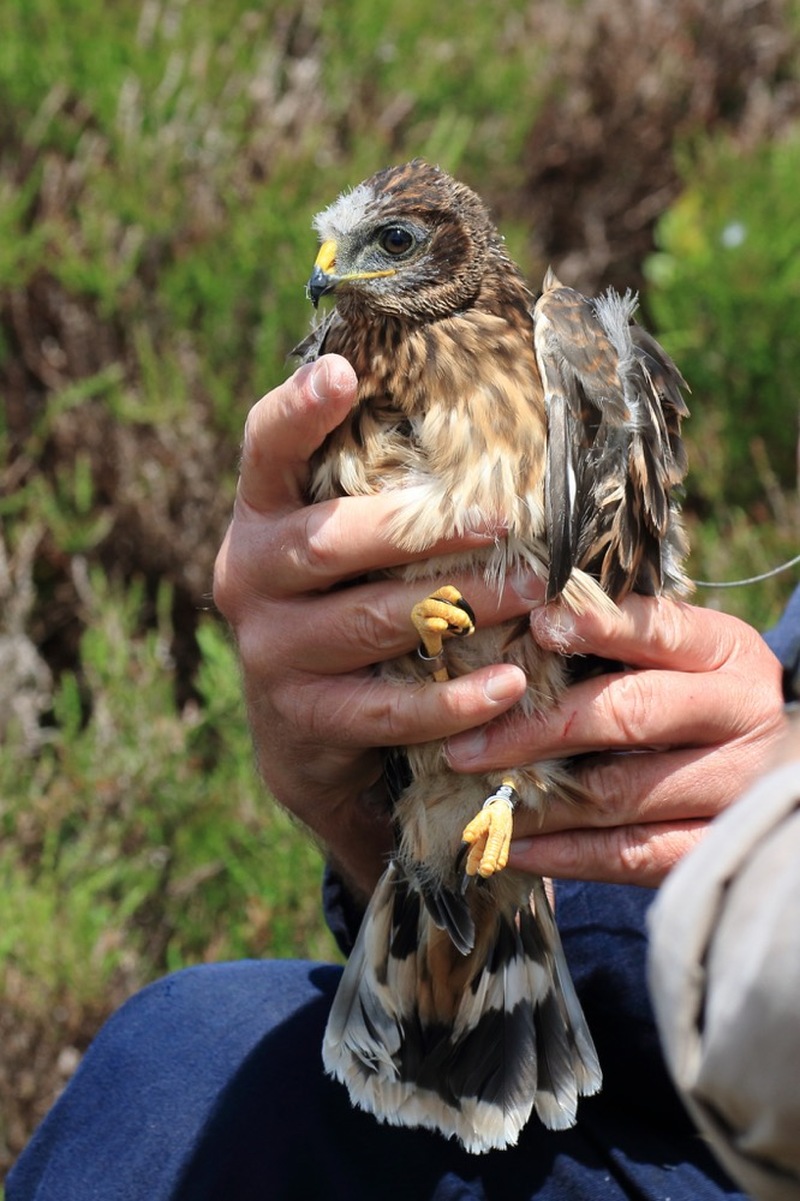AN investigation has been launched by South Yorkshire Police’s rural crime team after a rare bird of prey - which had been tracked by conservationists for two years - was killed.
The male hen harrier, christened Anu upon being tagged by the RSPB, has been tracked since 2021 on moorland which separates Barnsley and Sheffield.
Having been tracked in areas such as Crane Moor, Thurgoland and Wharncliffe Crags, Anu’s tag indicated that he was roosting on a grouse moor on February 10.
However, the tag data showed unusual movement from the bird after 10.25pm that night, when Anu would normally have been stationary.
The tag’s next signal - which pinged a day later - was more surprising still, indicating the bird was dead.
After an intensive search, the tag was found, nine kilometres away to the east, on February 14 at Wharncliffe Chase, although there was no body.
The RSPB’s Tom Grose, who is investigating the incident, said: “This was reported to South Yorkshire Police and forensic analysis confirmed the tag harness had been cut by a human rather than bitten or pulled off.
“We suspect that Anu was killed, and the body and tag separated to remove evidence from the crime scene, with the tag then dumped.
“Anu’s body remains missing, and further enquiries have been unsuccessful.
“To find Anu’s tag detached from his body, having been deliberately cut off, categorically shows human involvement.
“It is highly suspicious that he roosted on a grouse moor the night before, was unexpectedly active in the hours of darkness and hasn’t been seen since.
“We suspect that that Anu was killed that night, his tag was cut off and then the body dumped away from the grouse moor by someone trying to cover their tracks.
“The deliberate killing of a wild bird is illegal.”
Hen harrier numbers have shown continuous improvement over the past six years in Barnsley, coinciding with the introduction of the government-led recovery plan in 2016.
The trial has seen 34 chicks from nine broods take to the wing in total - and five of the brood-managed birds have gone on to breed in the wild, adding 17 chicks to the wild hen harrier population.
The trial involves eggs and chicks from wild nests being reared for a few weeks at a specialist bird of prey centre before being transported to pens on grouse moors where they are tagged and monitored before being released into the wild, back into the same general areas that they came from.
However, a 2019 study of satellite-tagged hen harriers by Natural England revealed that 72 per cent of 58 were either confirmed or considered very likely to have been illegally killed.
Furthermore, it found that hen harriers were ten times more likely to vanish mysteriously or die on a grouse moor than anywhere else.
Tom added: “When only a small percentage of hen harriers in the UK are tagged, you can’t help wonder what is happening to the other non-tagged birds.
“This is a species in trouble, and the UK population remains far below what it should be.
“As the nature crisis tightens its grip, illegal persecution of raptors must be stopped and that will only happen through the licensing of driven grouse moors as is happening in Scotland to bring accountability to this form of land management.
“The RSPB would like to thank South Yorkshire Police for their work on this case.”
If you have any information about this incident, or know of anyone killing birds of prey, call South Yorkshire Police on 101.


























